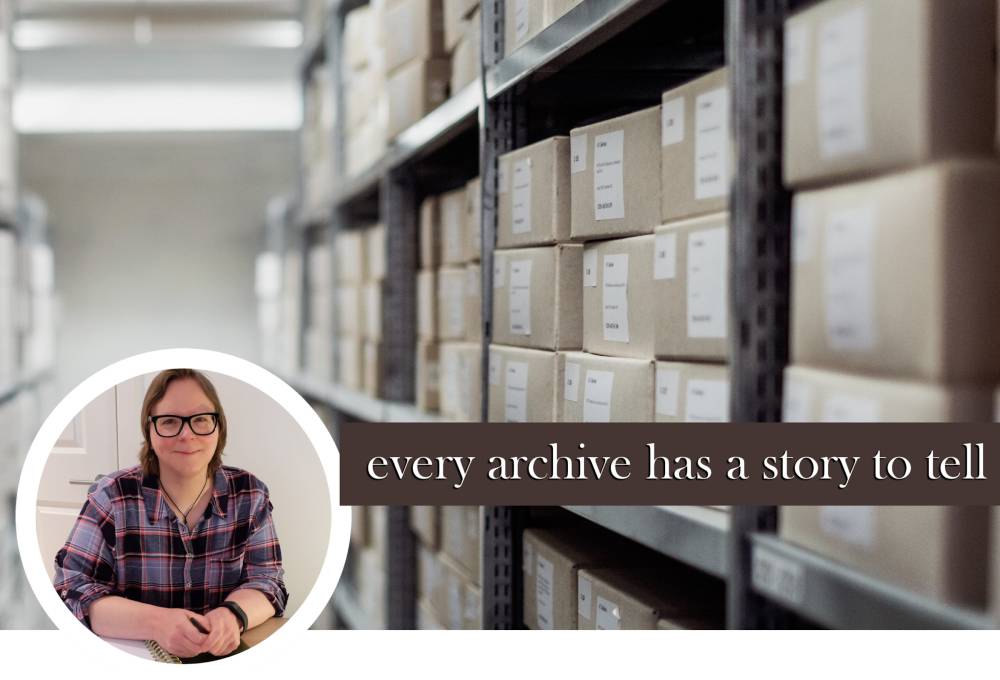Dr Sarah E Hayward

Contact
- Email: k1243665@kingston.ac.uk
- Location: Kingston School of Art, Knights Park
- Faculty: Kingston School of Art
- School: School of Creative and Cultural Industries
- Job market candidate
- Personal website
Research project: John Langdon Down's Normansfield: Stories from the Archives and their Contribution to Heritage
Abstract
The pursuit of social acceptance and integration, equal rights, and self-advocacy, is an ongoing struggle for people with a learning disability. An important part of this endeavour is the understanding – and ownership – of the history of learning disability. One of the pathways to achieving this is through heritage: the interpretation and (re)presentation of history to a contemporary audience.
This archives-based research project explores the early years of Normansfield Hospital, founded in 1868 by John Langdon Down (1828–1896), one of the first institutions dedicated to the understanding, education, and care, of people with a learning disability. The extensive Normansfield Archive Collection is now held at the London Metropolitan Archives, and Normansfield's largest surviving original building has become home to the Langdon Down Museum of Learning Disability.
The project is a multidisciplinary one, and it encompasses the fields of cultural heritage and archives, museum studies and museum interpretation, and the history of people with a learning disability. Through my engagement with the Normansfield Archive Collection, the thesis probes issues around archival research. These include addressing problematic historical language; negotiating presences and absences; giving voice to the voiceless; inclusivity in theory and in practice; creating narratives; and exploring different approaches to the museological interpretation of archival material.
The project's outcomes comprise a written thesis and three creative pieces. These latter serve as prototype experiments in interpretation strategies: a video presentation which tells Lucy's Story; a six-stop audio guide and booklet; and the design for an exhibition entitled The Difficult Heritage of Learning Disability. The thesis addresses the historical complexities and contemporary issues of researching, interpreting, and (re)presenting the history of people with a learning disability; and explores some of the ethical considerations involved. It also questions the positionality of this history in relation to ‘Difficult' Heritage. The project contributes new material, it encourages fresh discourse, and it shines new light upon this critical – yet largely marginalised and underrepresented – subject.
- Research degree: Practice-based PhD
- Title of project: John Langdon Down's Normansfield: Stories from the Archives and their Contribution to Heritage
- Research supervisor: Professor Fran Lloyd
- Other research supervisors:
Biography
I joined Kingston University in 2012 and completed the taught MA in Museum and Gallery Studies the following year. Having felt that year fly by impossibly quickly, I applied to continue in higher education with a PhD. When I undertook the MA, I discovered freedom and inspiration through combining practice and theory, along with a new sense of confidence in my creative work. I adopted a similar approach to my PhD project, and I greatly enjoyed the challenge.
I'm a committed, diligent individual with experience of conducting archival research at various sites towards academic and commissioned projects. I have enjoyed presenting the results of my research in a clear and actionable format with a high attention to detail, having produced concise reports, designed museum products, and given a number of talks. I welcome ideas for new research projects and collaboration opportunities, please get in touch!
drsarahehayward@gmail.com
Areas of research interest
- Museum and Heritage Studies
- Normansfield Hospital
- John Langdon Down
- Learning Disability History
- Archives
- Research Practice
- Museum Interpretation
- ‘Difficult' Heritage
- The Langdon Down Museum of Learning Disability
Qualifications
- PhD Museum and Heritage Studies, Kingston University London
- MA (with Distinction) Museum and Gallery Studies, Kingston University London
- BA English, Exeter University
Funding or awards received
- Kingston University bursary
Conference papers
- 'Heritage, Community, Archives: Methods, Case Studies, Collaboration' SHEFFIELD HALLAM UNIVERSITY | Jun 2023
- ‘The London Stage and the Nineteenth-Century World IV' NEW COLLEGE, OXFORD | April 2022
- ‘Doing Research on the Social History of Learning Disability: Learning Lessons' SOCIAL HISTORY OF LEARNING DISABILITY CONFERENCE | Jul 2017
- ‘Festival of Stories' KINGSTON CONNECTIONS | May 2015
- ‘Heritage Hub' ACCENTUATE HISTORY OF PLACE | Nov 2014
- ‘Capturing the Intangible' ICA STUDIO SESSION | May 2014
